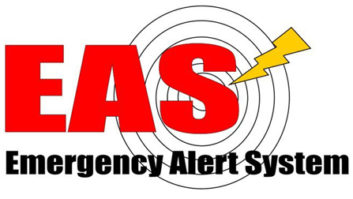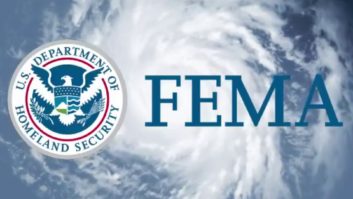The FCC hopes that on Nov. 9, stations can inform the agency quickly whether they received the national EAS test message and if they were able to pass it on. It hopes broadcasters also will be able to follow up with a more detailed report later.
To that end, the commission is developing an electronic reporting system for stations to use to report after the national EAS test.
The agency hopes to have the system finished soon and is awaiting approval from the Office of Management and Budget, according to Greg Cooke, associate chief of the Policy Division of the FCC’s Public Safety & Homeland Security Bureau. He spoke during an EAS webinar Friday.
When the reporting system is ready, he said, stations should fill out the basic station information ahead of time, such as facility ID numbers, monitoring obligations and specific EAS equipment details.
NAB Senior Director of Engineering and Technology Policy Kelly Williams said stations should decide ahead of time who would fill out the report, noting that in some cases, the legal department may want to review it.
Cooke stressed that rather than taking a punitive stance against stations that can’t receive or pass on the message, “our real emphasis is on participation in the test.”
Undetermined is what would happen to the information that stations must submit to the FCC within 45 days after the Nov. 9 test. Cooke said that’s still being discussed, though the FCC realizes some information would be useful to the industry.
He said the e-reporting system would have a secure portal. “We need to know that data people send to us is not going to be available to competitors, among other things.”
Adrienne Abbott, chair of the Nevada Emergency Communications Committee, said it would be helpful to have aggregated station data in order to identify EAS system problems and fix them.
NAB, the FCC and FEMA also are working together to come up with PSAs to inform the public about the national test.
NAB Associate General Counsel Larry Walke said when those are ready, the trade group is planning to notify its members and would make the radio PSAs downloadable on its website and distribute the television PSAs by satellite.










